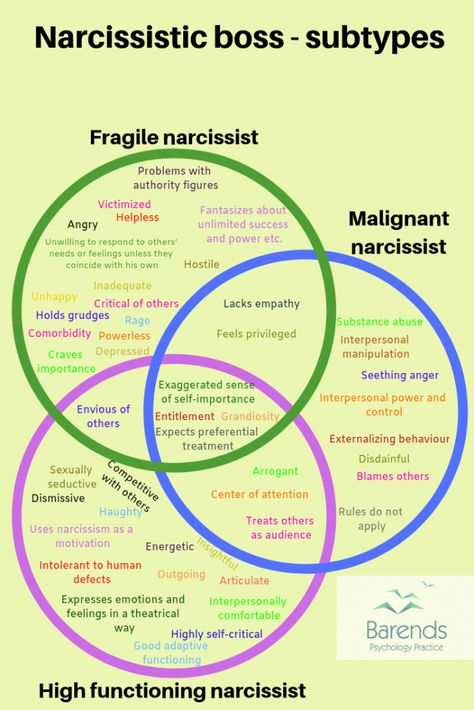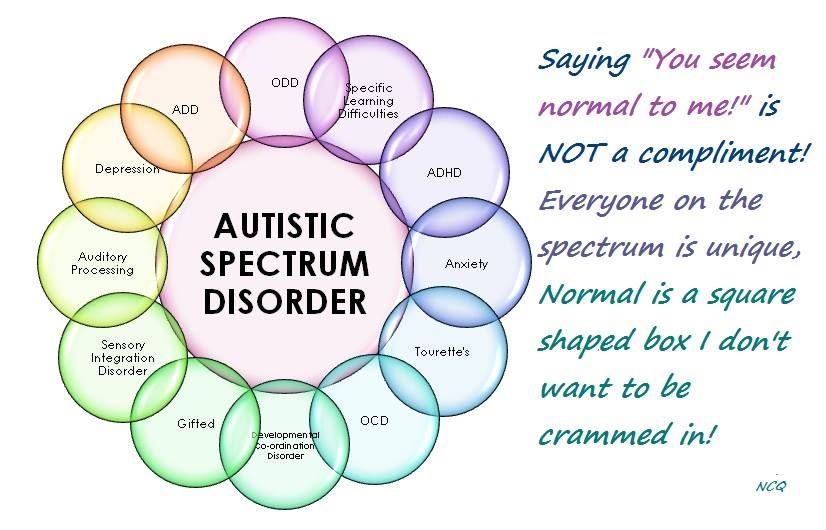How to mess with a narcissist
How to Piss Off a Narcissist in 12 Surprisingly Easy Ways?
Narcissists love attention, validation, and power. So what drives a narcissist crazy?
Simply put, anything that jeopardizes their basic needs for superiority can quickly irritate them.
If you want to know how to infuriate a narcissist, you can look no further than giving them nothing.
But you can also stand up for yourself, set boundaries, and refuse their gaslighting strategies. Let’s dive into how to piss off a narcissist.
1. Praising Someone Else Or Something Else
Did you see the way he performed last night? He was incredible!
She’s such a good wife. He’s lucky to have her.
They did a great job decorating their home. I love it.
How to make a Narcissist feel bad? The feeling like someone else is better than them. Very few things make them feel more miserable than that insecurity.
Their egos cannot comprehend that other people deserve recognition and attention in the same ways they do. Instead of feeling happy for someone else’s success, they tend to experience confusion, jealousy, and even contempt.
When they hear you praising someone else, they will usually respond by:
- Criticizing you or your taste (making it seem like you’re acting crazy).
- Trying to take credit for that person’s success.
- Shrugging off the praise, as if it doesn’t matter to them.
- Attempting to one-up their success.
- Getting angry and telling you that you should be with that person instead.
- Discrediting the praise and blaming the person for lying, stealing, or manipulating.
In other words, a narcissist doesn’t really know how to be happy for someone else. Instead, they will search to find a narrative that suits their personal success story.
2. Pursuing Your Own Interests
Narcissists assume they know the best way to live life. For instance, if they love golfing, you’re an idiot if you don’t enjoy the game. If they enjoy a particular restaurant, you lack good taste if you prefer somewhere else.
Pursuing your own interests can easily piss off a narcissist, especially when your preferences clash with theirs. Some major conflicts of interest can include:
- Voting differently from them.
- Being more or less religious than they are.
- Spending time with friends they don’t like.
- Following a different diet.
- Consuming media (certain movies or music) they don’t enjoy.
To retaliate, they may tease or criticize you for your choices. Or, they may try to sabotage you altogether.
Their efforts to belittle you often come from a place of insecurity and fear. Deep down, narcissists feel afraid of losing power and worry about losing you to someone or something else.
3. Disregarding Material Goods
Many narcissists are obsessed with earning and flaunting money. Big houses, fancy cars, designer clothes- they want it all, and they want to show it off to everyone in the world.
Many times, they substitute love for money. They also may inflate their worth by trying to prove their love by how much stuff they give you.
They also may inflate their worth by trying to prove their love by how much stuff they give you.
Reading Suggestion: 11 Typical Examples of Narcissist text Messages
If you don’t show much interest, they may feel oscillate between feeling embarrassed, confused, and irritated. What do you mean you don’t want this? What’s wrong with you? Anyone would kill to be in your shoes! You don’t even realize how lucky you are.
How to Piss off a Narcissist #4. Helping Someone Else
It’s no secret that narcissists tend to be extremely selfish. Their large egos leave little room for caring about other people. Subsequently, they perceive others as either pawns or challenges- not as entire people with complex thoughts and feelings.
If you choose to be generous or compassionate towards someone else, they will likely feel angry.
Reading Suggestions:
- How to make a Narcissist tell the truth?
- How to Get Revenge on the Narcissist?
They may demean you with mean comments like, why are you being such a martyr?
Or they might try to stop you altogether with expressions like we don’t have the money for you to just donate to charity right now. You need to focus your attention on our family.
You need to focus your attention on our family.
#5 Succeeding (And Outperforming Them)
It’s a misconception that narcissists only want weak-minded people in their lives.
Many narcissists do enjoy the company of intelligent and thoughtful people. There’s just one caveat. They still need to be the best. And if they’re not the best, they need to be close to it.
How to piss off a Narcissist? By becoming better than them. If you start succeeding, it becomes extremely threatening. They don’t quite know how to cope with this new reality. Instead of celebrating and feeling happy for you, they may respond by:
- Dismissing your success: It’s not that big of a deal. Anyone could have done that!
- One-upping your success: It’s great you did that. By the way, did you hear about my new promotion at work…?
- Accusing you of cheating, lying, stealing, or having some kind of external advantage:
You only got that opportunity because your boss wants to sleep with you.

- Attributing your success to their actions: I’m glad I told you to go after that! If I hadn’t said anything, you wouldn’t have even tried.
- Blaming you for hurting them: You’re just trying to make me look bad, aren’t you?
You deserve every ounce of your success. Choosing to embrace (and even revel!) in it will continue to enrage them.
#6 Validating and Loving The Scapegoat
Narcissists see the world in a strict black-or-white sphere. These extremes allow them to either love or hate other people- there is no in-between.
As a result, narcissists use scapegoats to project blame and frustration onto other people.
These scapegoats are singled out for their real or perceived flaws. They become the victim of emotional (and sometimes physical) abuse.
But it’s not just the narcissist who wants to blame the scapegoat. They want other people to rally against them as well. They want the entire world to see how messed up the scapegoat really is.
When you defy this narrative and stand up for the scapegoat, you shatter part of their master plan.
You create friction within the dynamic, and that enrages the narcissist. They aren’t interested in seeing your perspective, but they also don’t like knowing that you aren’t on their team.
Reading Suggestion: I Don’t Want To Be a Narcissist Anymore
#7 Being Stoic
Stoicism refers to withstanding pain or discomfort without exhibiting an outward emotional response. In other words, it’s taking things as they come without complaining or reacting.
Let’s be real. Narcissists love to create drama– they live for stirring the pot and causing problems.
They expect you to react and even retaliate. Even though you think that your emotions might irritate them, the opposite holds true. Having no emotional response tends to be the most threatening response of all.
That’s because narcissists need to know they control the room. In a way, your anger or sadness shows they have power over you.
In a way, your anger or sadness shows they have power over you.
It shows they can contort your emotions. So when you don’t give them that pleasure, they are forced to examine their hollow selves.
#8 Respecting Authority
Have you ever noticed how often narcissists have issues in the workplace? It’s because they don’t play very well with others, and they certainly don’t know how to follow the rules.
Narcissists tend to detest authoritative figures, whether it’s their boss, law enforcement, politicians, or even their parents. They don’t like someone calling the shots unless that someone is them.
Moreover, they expect you to agree with their ideology. They will spend a great deal of time trying to prove to you why the other person is incompetent, unfair, or otherwise idiotic.
The best way to piss them off? Keep following the rules. Respect the authority figures appropriately. Consider thanking the authority for their hard work and good efforts.
If you do this, you can watch the narcissist unravel. It will happen very quickly.
#9 Consistently Maintaining Your Boundaries
Narcissists aren’t stupid. They understand the concept of boundaries, and they recognize that everyone has personal limits.
But they also believe that they are entitled to what they want. Therefore, even though they logically comprehend boundaries, they see themselves as exempt from the rule.
To them, boundaries are simply a suggestion or even a challenge. They will do what they can to try to convince you that your boundaries are silly or inappropriate.
The solution to this insanity? Implement your firm boundaries. Every single time. No ifs, ands, or buts. No one-time exceptions.
The more you stand firm with your limits, the less power they have over you and your actions.
And yes, this will piss them off endlessly. You will see the rage in real-time by the way they call you stupid or crazy or mean. You will see it in the way they try to smear you to others or gaslight your reality altogether.
#10 Going To Therapy
Just like narcissists dislike authority figures, they also tend to resent healthcare professionals.
Narcissists don’t want anyone poking and prodding about their lives. They want to act in their usual ways without any real accountability for their appalling behavior.
If you choose to pursue therapy, the narcissist will feel threatened. They will undoubtedly worry about what you talk about in your sessions. They may fear the therapist siding with you or discrediting them.
More than that, narcissists don’t like thinking that someone or something may empower you to think differently.
They want you complacent and complicit with their behavior. They know that therapists may try to explore alternative ways of coping with your emotions.
This anger comes out in several different forms, including:
- Bargaining: You don’t need therapy. You can talk to me. I’ll always listen.
- Scapegoating the therapist: They’re just after your money.
 They don’t care about you!
They don’t care about you! - Stalkerish, controlling behaviors: I want to go to the next session with you. If you’re going to blab about your personal feelings with someone, I want to know who they are.
- Complete refusal of support: I am not going to pay for these sessions. You’re on your own.
#11 Spending Time With New Friends
Narcissists want to know the people in your life. Mostly, it’s because they want to vet them. Are they someone who will align with the narcissist’s values? Or, are they someone who may pose a serious threat?
When you hang out with new people, it activates their insecurity, jealousy, and confusion. They can’t exactly understand why they wouldn’t be enough for you.
They may respond in several, dysfunctional ways, including:
- Criticizing the other people before they have even met them: I’ve heard she’s crazy.
- Acting like the victim: Do you not like spending time with me anymore? Am I really so boring?
- Praising your old friends: What about so-and-so? They’ve always been so supportive of you.
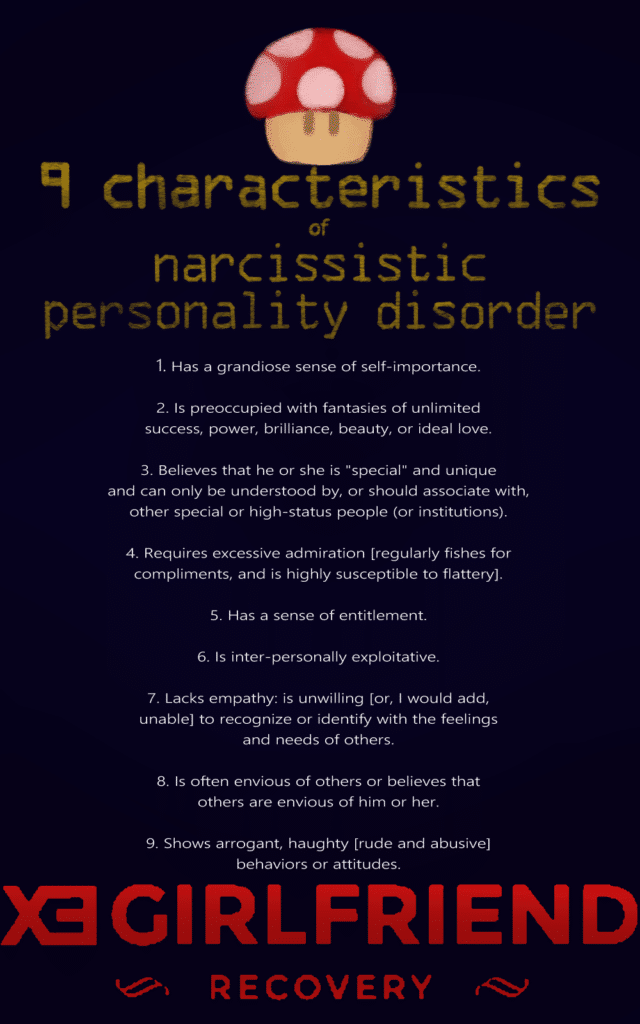 I think you should try to reconnect more with them right now.
I think you should try to reconnect more with them right now.
- Trying to charm you all over again: I know you were planning on having dinner with so-and-so tonight, but I’m cooking you something special, and I have a great surprise afterward.
- Responding with passive-aggressive comments: I guess you’re too busy for me now. I’m happy for you, though. You obviously need a change.
#12 Ending Your Relationship Entirely
A narcissist believes that you’re fortunate to have them in your life. You should be thanking them for their wonderful existence!
If you choose to cut ties with them, prepare for the tumultuous rollercoaster of shock, rage, and terror.
—-> Read Our Guide To The Narcissist in Relationships
They are so used to the status quo of them dictating everyone’s behavior that they don’t know how to cope when someone stops playing by their rules.
To retaliate, they will usually try many different tricks to manipulate you back into their lives.
Reading Suggestion:
- How to deal with the Narcissist Smear Campaign?
- I miss you! I promise to change. I’m going to start going to therapy.
- I didn’t mean what I said. Can you give me another chance?
- You need me! Who else would put up with you?
- What would the kids think if you left? Is that the kind of parent you want to be?
- What about all the good times we had? Do you really want to throw them all away?
- Just wait until I tell everyone what kind of person you really are.
These all represent different scenarios where a narcissist may attempt to gaslight you.
Because they are crafted to tug at your emotions, they often work. So when you take the opposite approach and continue to take the high road, it’s absolutely infuriating.
Did you try any of these things? Please share them with us in the comments.
Are You Interested in The Following Topics?
Last Updated on September 9, 2022 by Alexander Burgemeester
How to Humiliate an Absolute Narcissist
Throughout history, individuals and groups have fallen for an easy way out of life’s complications by just pretending that they can do no wrong. Moment to moment, challenge to challenge, they’ll grab any bogus rationalization that they pretend beats all challenges to their absolute authority.
Moment to moment, challenge to challenge, they’ll grab any bogus rationalization that they pretend beats all challenges to their absolute authority.
It can happen to any of us depending on appetites, aptitudes, and opportunities. Indeed, as psychologist Craig Malkin rightly points out, some narcissism is a good thing. But here the focus is on people who fall all the way into it: Absolute narcissists.
Confirmation bias, the universal impulse to embrace only what affirms us and dismiss all that challenges us is a problem we all must learn to manage. Absolute narcissists instead treat confirmation bias as the solution to all of their problems.
Being an absolute narcissist takes discipline of a peculiar kind, the discipline to be completely undisciplined, no consistency in their relentless and bogus rationalizations, the discipline to say in response to everything “that proves I’m right” with no attention to reality, or the meaning of the things they say since all that matters is keeping up the appearance of winning, acting like a robot programmed to pretend to beat every challenge, an algorithm for sorting all wins to themselves and all loses to whoever challenges or threatens their authority. To be an absolute narcissist, one needs to know nothing but how to act like an absolute know-it-all. No wonder it has been such a tempting option throughout the ages.
To be an absolute narcissist, one needs to know nothing but how to act like an absolute know-it-all. No wonder it has been such a tempting option throughout the ages.
For an absolute narcissist to stay on message, there can’t be a message other than a relentless “See? I win!” Still, to conceal their egomania, absolute narcissists have to pretend that they have some moral message. They, therefore, cloak themselves in whatever fake crusade justifies declaring total war against all of their competition. Their fake crusade distracts their competition, people who take the meaning of words seriously and are trying to figure out what’s right.
Throughout history, absolute narcissists have proven again and again that one doesn’t need a vision, just the pretense of one. Like all con artists, they can fake a good winning streak and garner a following of gullible people who want in on the streak. Thus, throughout history, there have also been absolute narcissist epidemics, cults, thrilling at having discovered a way to escape reality just by treating their confirmation bias as a solution to all their problems.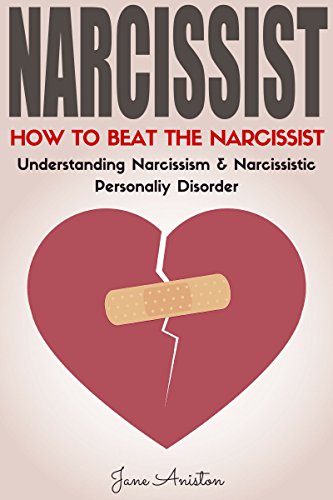
Absolute narcissists are exhibitionists. They sidle up as if for normal human conversation. When they’ve got you hooked, they open their trench coats and show off their stiff little absolute invincibility. They do so with confidence because they know they can win no matter how you respond. They’re ready for your reaction whatever it may be. If you scold them, they’ll call you a prude. If you walk away, they’ll call you a chicken. If you try to be nice to them, they’ll call you a wimp. If you act out, they’ll call you upset. If you attack them, they’ll scold you for being uncivil. They’ll posture automatically and robotically any which way to maintain their false appearance of invincibility.
No society has ever found an antidote to an absolute narcissist epidemic. Instead, the epidemics have died eventually simply because no one can pretend they’re righter than reality forever. Such movements eventually lose their battle against reality, though often causing mass destruction in the process.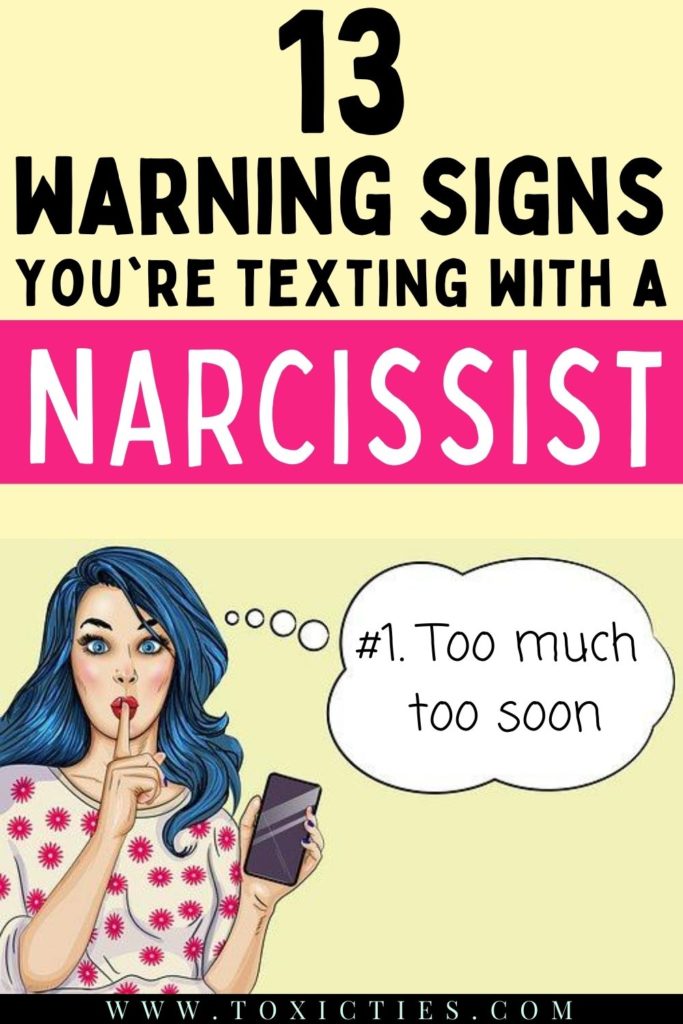 The most likely cause of humankind’s eventual extinction is runaway confirmation bias of absolute narcissist movements whether through world domination or the conflagration that results from infallibility battles between opposing absolute narcissist movements.
The most likely cause of humankind’s eventual extinction is runaway confirmation bias of absolute narcissist movements whether through world domination or the conflagration that results from infallibility battles between opposing absolute narcissist movements.
The challenge that has eluded humankind all along is this: How do you stop absolute narcissism? How do you stop people and movements whose only goal is remaining unbeatable? Here are some curiously untried suggestions:
Don’t try to persuade an absolute narcissist. Instead, humiliate them, cut them. Make them bleed in any exchange with others listening in, whether face to face or in a Twitter exchange. Talk past them to the audience. He’s just a specimen of mindless mechanical pretend invincibility. “See what they did there?”
How do you cut them?
Absolute narcissists are one-trick phonies. Focus doggedly on their one trick: “See what they did? They’ll say anything to jerk themselves off into feeling like a winner, like some scummy little exhibitionist. ”
”
The absolute narcissist will retaliate and yet, having only the one trick, everything they say will confirm your accusation. Respond with “Look, they did it again.” Be relentless and don’t fall for any of the distractions they throw up as their smokescreen. They don’t care about substantive debate except as an excuse for pretending everything that challenges them is wrong. Don’t be confused.
Leave your subjective morality out of it. Don’t scold by your personal standards. Whatever your standards, an absolute narcissist will make you wrong for having them. There’s really only one moral issue and its universal: No one beats reality. Reality, which absolute narcissists don’t care about at all, beats all absolute narcissists no matter how insistent their pretense of ruling reality.
There’s no need to defend yourself. Absolute narcissists will try to ensnare you in your own moral doubts by pretending they care about moral standards they care nothing about. They operate on defaulty logic. If they can find any fault in you, that proves that they are faultless by default. They blare their morality police siren so loud they don’t have to hear their own hypocrisy. Don’t let yourself be ensnared. Be proud of your human fallibility and shame them for pretending to be superhumanly infallible.
If they can find any fault in you, that proves that they are faultless by default. They blare their morality police siren so loud they don’t have to hear their own hypocrisy. Don’t let yourself be ensnared. Be proud of your human fallibility and shame them for pretending to be superhumanly infallible.
For example, if they play prude, saying, “Don’t be a mean name-caller,” say to the audience, “This fool doesn’t even notice that name-caller is a name. We all name call. We’re all mean sometimes. I’m trying to name call with precision, and I’m mean where I think meanness is earned. This absolute narcissist doesn’t care about name-calling or meanness. They pretend to care when it helps them pretend they’re eternally right and righteous. Pitiful.”
And then flip it to ensnare him. Call them things that you don’t think are universally bad. Say they’re just masturbating in public. When they try to deny it as though masturbation is bad, laugh at them for their prudishness. Tease, ridicule and shame them mercilessly for not trying to figure out right from wrong, instead, pretending to have it all figured out.
Tease, ridicule and shame them mercilessly for not trying to figure out right from wrong, instead, pretending to have it all figured out.
Stay calm, even friendly, to the person cowering inside their absolute narcissistic fake infallibility cloak. Stay light, even humorous. It’s nothing personal. Anyone can become an absolute narcissist. They think they’re special. Far from it. They’re just another in a long line of people for whom reality is too scary to face and too easy to dismiss.
Don’t be distracted by your own judgmental labeling as if calling someone an absolute narcissist is condemning them to a life sentence. A narcissist is a gloat-aholic, absolutely addicted to the gloating lifestyle. You're intervening because you are optimistic that they could get over their addiction. They'll deny it and scold you for calling them names. That's no different from an alcoholic taking umbrage at being called an alcoholic. The irony is that you're more hopeful than the absolute narcissist. You believe they could drop their robotic self-aggrandizement and rejoin humankind. To you, it's a deadly lifestyle they could drop. To them, it's their very essence, unchangeable. If anyone thinks their condition is permanent, it's the absolute narcissist, not you.
You believe they could drop their robotic self-aggrandizement and rejoin humankind. To you, it's a deadly lifestyle they could drop. To them, it's their very essence, unchangeable. If anyone thinks their condition is permanent, it's the absolute narcissist, not you.
Exhibit confidence not born of some strategic posture you have to try to sustain through all of the absolute narcissist’s maneuverings but from your gut opposition to all absolute narcissists because they pretend they’re God, masters of, and not subject to reality. If an absolute narcissist tried to seduce you by pandering to your every care and commitment, you’d try to cut them too. You’re not fighting against what the absolute narcissist believes. They don’t have beliefs in anything other than their own absolute infallibility. Rather, you’re fighting in opposition to all absolute narcissism. You’re a fallible human trying to adapt to our rapidly changing reality – just as the narcissist would be if he hadn’t fallen for the oldest, cheap trick in the book. Life is and has always been trial and error, iffy guesswork. Be proud of your ever-learning guesswork.
Life is and has always been trial and error, iffy guesswork. Be proud of your ever-learning guesswork.
Don’t let the narcissist turn the debate into a win all/lose all battle for fake infallibility where if you admit to your humanness, that you're suddenly proven eternally absolutely wrong about everything and they’re vindicated, suddenly proven eternally absolutely right about everything. No one is infallible and anyone who pretends to be deserves a swift, sharp kick. Kicking them doesn’t mean you’re infallible. Don’t play along. Everyone is fallible.
Fallibilism has always won because reality isn’t impressed by narcissistic strutting. Reality will do what it does and all we can do is our human best to learn how to deal with it, starting with learning how to shut down know-nothing, know-it-all narcissists who pretend they’re done learning.
With absolute narcissists, it’s not that the emperor has no clothes. It’s that the emperor is nothing but clothes, a suit of armor with nobody home. You can embarrass that empty suit in front of an audience. That’s how you shame a narcissist back to their fallible human senses.
You can embarrass that empty suit in front of an audience. That’s how you shame a narcissist back to their fallible human senses.
Here's a video identifying the range of moves used by absolute narcissists.
Here's an audio illustration of how to apply the techniques described here.
How to deal with narcissists: 5 tips
58,879
Man among people Practices how to
Recently, a friend told me that she happened to observe a narcissist and his behavior aroused hatred in her. This is amazing because she is probably the kindest and most caring person I know.
What to do when confronted with the ugly manifestations of narcissism: lack of empathy, arrogance and arrogance, boastfulness and megalomania, the need for constant admiration from others and the tendency to blame everyone around you except yourself?
Usually, when we experience strong emotions, it is best to discuss them with someone, ideally the same person who causes these emotions in us. This helps in many situations, but narcissists don't care about our feelings.
This helps in many situations, but narcissists don't care about our feelings.
Many years ago I told a narcissistic friend about my experiences. I spent many hours pondering how to carefully and carefully express to him everything that was on my mind. I opened up to him, trying to take into account his feelings and psychological state, but in response I received only bitterness and an endless stream of accusations. So how do you protect yourself from narcissists?
1. Look at the situation more broadly
You cannot control or change other people, but you can control yourself and change your own attitude to what is happening. Narcissists are great at drawing people into their world, making them accept their point of view. Try to notice this as early as possible and look at the situation more broadly.
The person you are talking to is only one of more than seven billion people on the planet. Why give him power over your emotions?
2. Think about your strengths
List your five greatest strengths in your personality and make a plan on how to use them to protect your psychological well-being when dealing with such a person.
3. Avoid "dirt"
Try to control yourself and not give in to the obsessive desire to meet, communicate, maintain contact with a narcissist. Be smart and find better uses for your time.
4. Benefit from Communication
Ask yourself which character traits of a narcissist excite you the most. What you don't see in him is honesty, kindness and modesty? Most likely, the manifestation of the most significant traits for you causes the strongest reaction. Thus, by observing your reaction to the behavior of the narcissist, you can learn more about yourself, and this knowledge will be useful in resolving your own problems and conflicts.
5. Learn to better understand the behavior of others
When it comes to a mild form of narcissism that does not reach the level of a personality disorder, it is useful to consider the behavior of such a person in the context of his strengths: which of them he does not use enough, and which, on the contrary, he uses redundant.
However, in the case of severe narcissism (commonly called narcissistic personality disorder), unhealthy patterns of behavior and thinking are deeply rooted in the person's personality and can hardly be called simply a misuse of strengths.
A complete lack of empathy cannot be reduced to simply a lack of kindness or social intelligence. The megalomania, the constant need to be the object of admiration and outbursts of rage at the slightest provocation, is not just a lack of self-control.
Another view is also possible: narcissists use the strengths of their personality in inappropriate ways - for example, to manipulate others. Perseverance and creativity can also be used for unseemly purposes. The narcissist uses all his strengths for one purpose: to get the maximum benefit for himself, regardless of the others.
The narcissist probably doesn't care about your well-being, but you do. You have the right to protect yourself and take care of yourself.
About the author: Ryan Nyimets is a psychologist, coach, specialist in mindfulness meditation, positive psychology.
Text: Nikolay Protsenko Photo credit: Shutterstock
New on the site0003
“To live in a foreign country, you have to love something very much in it”: Russian emigrants who left and never returned
Top 9 ways to “take out” reality 2022: verified by the editor of Psychologies.ru how to accept your new state
“I have lost my beloved husband and am suffering a lot. How to relieve your pain?
Grandmother raises a child in her own way: 4 reasons and one solution
Lust for success: how to survive on the way to your goals
what to do if you have to communicate with a narcissist
Psychologists warn about the dangers of close relationships with a person suffering from narcissism and how to avoid them.
Psychologist Andrey Yudin published a post in which he explained in detail what “narcissists” are and how to behave with them so as not to run into big trouble.
The psychologist told in detail that narcissism is not a joke, but a severe mental disorder, a type of disability, that if, God forbid, fate brought you together with a narcissist, then you need to do this and that, and urgently, without delaying the long box, and not the fact that you will be able to escape from the clutches of these people, in any case, meeting a narcissist is a severe traumatic experience that will forever remain in your hearts.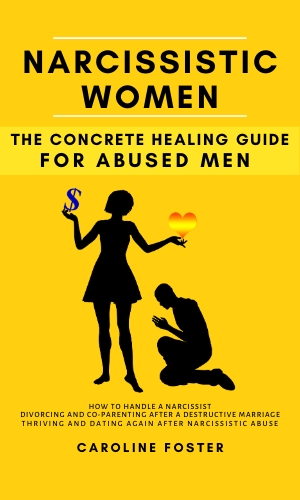
Yudin explained that “in the perception of the narcissist, the other person is something like a character in his personal computer game, the main property of which is that he brings pleasant and unpleasant feelings to the narcissist. And when these feelings are unpleasant, the narcissist seeks to quickly block this influence. There are many ways here: manipulation, direct pressure, complete isolation from the character, or, if nothing works, at least the devaluation of the character in his own head, up to inventing a whole alternative reality where this person is very bad, dishonorable, inadequate, a psychopath, etc. P."
It should be remembered, the psychologist writes, that real pathological narcissism is a phenomenon akin to a severe disability:
this configuration, with the current development of technology, can be safely taken equal to zero. Yes, sometimes narcissists seek help if they have already reached the “handle”, but: firstly, even when they are in a severe crisis, in the vast majority of cases they do not go all the way to curing NPD and are limited only to relieving acute symptoms, and in secondly, it is definitely not worth counting on such a turn if the narcissist has access to a reliable source of fuel for his self-esteem . .. "
.. "
Kyiv culturologist Yulia Pyatetskaya , commenting on this publication, translates the language of the psychologist into universal and explains how to recognize a narcissist in everyday life and what to do when it becomes clear that this person suffers from narcissism:
“People. Life is a severe traumatic experience that will remain in your hearts until you die. Why are you always looking for reasons to complicate this experience somehow? Well, why? Don't you know?
People. If you met a young man who does not call you, but you suffer, this does not mean at all that he is a narcissist. Chances are you're just not his type.
If you meet a young man who, instead of responsible marriage, fools your head, it does not mean at all that he is a narcissist. He just doesn't want to. Or is already married.
If you meet a young man who lies, cheats and treats you cruelly, this is not a narcissist, but a scoundrel.
If you meet a young man who is selfish and thinks only of himself, this is not a narcissist. This is an egoist. That is, a person who always strives to make it better for him, and not for you. Get them in the neck.
This is an egoist. That is, a person who always strives to make it better for him, and not for you. Get them in the neck.
People. Narcissus is not a young man at all. They can be anyone. Quite often - a boring nasty aunt.
Just from the word "narcissus" it is impossible to form a feminitive, and in general the word is beautiful. This is where people get confused.
The concept of "narcissism" has a completely intelligible meaning, definition and meaning, the word "narcissism" has not only phonetics, but also semantics.
Narcissists are distinguished from all others by a single noticeable feature, thanks to which they cannot be confused with anyone else. Heightened self-esteem. And that's it. And that's it!
Narcissists are people with high self-esteem. True, this is enough to make communication with them unpleasant, unhappy, dreary and tiring. Narcissists are really extremely annoying people. If fate brings you to a narcissist, in five minutes you will know that this is a person of difficult fate and rare virtues. He himself will tell you all about it, even if you do not ask anything. After 10 minutes of communication, you will already want to dump, and here the main thing is not to miss the moment. Because if you hesitate, in 20 minutes you will have to listen to the story of his life, struggle and numerous triumphant victories. Or no less triumphant defeats. No matter what happens to a narcissist, he is always a triumph. Sometimes it's very funny. But you shouldn't laugh. Ridiculing a narcissist will immediately put you on his list of worst enemies, which is updated hourly, is that what you want? Go away. 10 minutes - and bring down, while at memory. You can say, "Thank you for a wonderful evening." This will boost their self-esteem.
He himself will tell you all about it, even if you do not ask anything. After 10 minutes of communication, you will already want to dump, and here the main thing is not to miss the moment. Because if you hesitate, in 20 minutes you will have to listen to the story of his life, struggle and numerous triumphant victories. Or no less triumphant defeats. No matter what happens to a narcissist, he is always a triumph. Sometimes it's very funny. But you shouldn't laugh. Ridiculing a narcissist will immediately put you on his list of worst enemies, which is updated hourly, is that what you want? Go away. 10 minutes - and bring down, while at memory. You can say, "Thank you for a wonderful evening." This will boost their self-esteem.
But they are not narcissistic egoists, not arrogant snobs, not cunning manipulators, not bloodthirsty abusers, not cruel cynical rascals. That is, they may also be like all other mortals, but they may not be. That's not the point of narcissism. The bottom line is that these are quite ordinary people who consider themselves unusual.